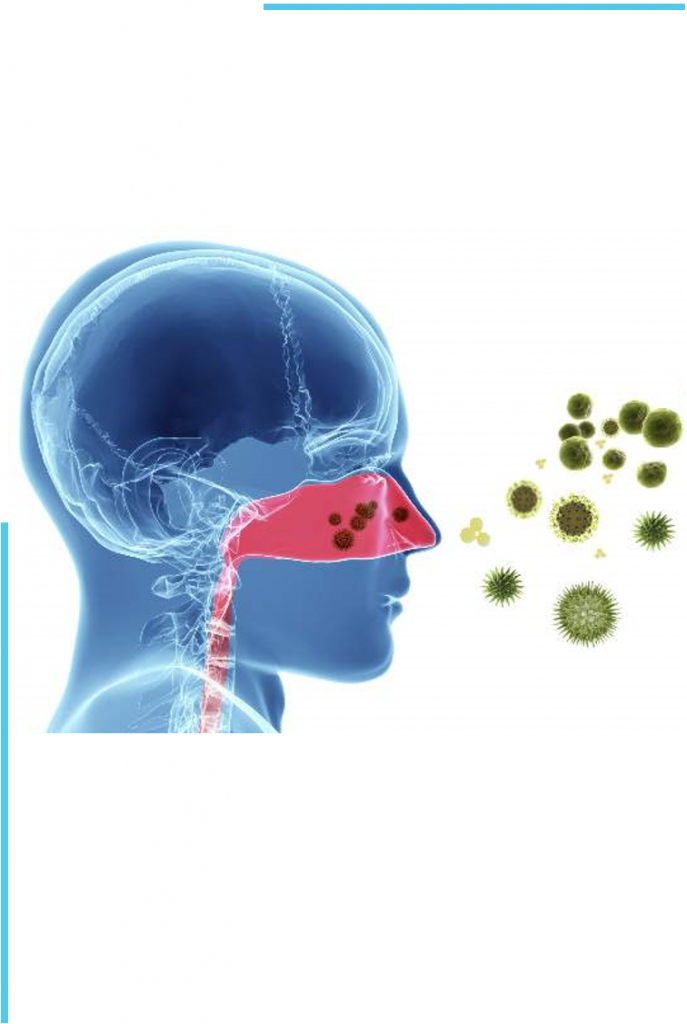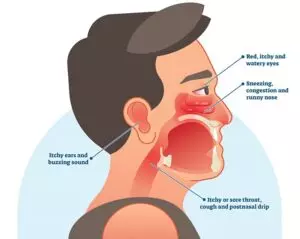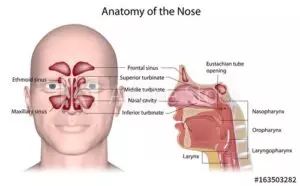In this article, we will be sharing the answer to the question ” Will Rhinoplasty help patients with Allergic Rhinitis?
What is Allergic Rhinitis?
Allergic rhinitis is a complaint that occurs with a non-microbial infection. The allergen in the environment is taken into the nose by inhaling and sticks to its inner surface. Some symptoms develop in people who are sensitive to this condition.
What are the symptoms of allergic rhinitis?
We can list the symptoms of allergic rhinitis as follows;
- Itching felt in the nose, dilution, and runny nose.
- Sneezing and continuous attacks.
- Itching on the palate.
- Desire to clean the throat constantly.
- Watery and itchy eyes.
- Tiredness.
Factors Causing Allergic Rhinitis
Animal and plant proteins are light enough to be carried in the air and difficult to see. These proteins accumulate on the membranes in the eyes, nose, and mouth. Particles such as pollen, fungus, animal hair, dust, and membranes also accumulate. Especially in the early spring pollen and trees cause allergic rhinitis. In addition, bacteria that mold bread and fruit, dry leaves, meadows, seeds, and straw cause allergic rhinitis.
How often is Allergic Rhinitis seen?
There are many allergic diseases. Allergic rhinitis is one of the most common of these diseases. Approximately 20% of society suffers from this problem. This disease is a type of illness that is mild for some and severe for others. It affects negatively the quality of life of patients with allergic rhinitis. As can be seen in later years, it generally occurs between 1 and 20 years old. It is possible to encounter a similar disease in the family.
Allergic Rhinitis Types
Allergic rhinitis disease can be categorized according to various factors. We can explain the types of allergic rhinitis as follows;
- Seasonal Allergic Rhinitis (also known as hay fever): It is the name given to allergic rhinitis triggered by factors such as tree pollen that occurs in a certain season. This season is usually spring and patients are more comfortable in other seasons.
- Perennial Allergic Rhinitis: We can call perennial allergic rhinitis when the patient is in contact with dust, animal hair, and allergens in various environments throughout the year. The complaints of these patients go on consistently.
- Occupational Allergic Rhinitis: These patients experience complaints due to the occupational substances they have to deal with in the work environment.
How Is the Allergic Rhinitis Diagnosed?
Factors such as the patient’s environment, age, and previously used medications should be determined. Genetically allergic status should be checked. Allergy tests should be applied. Individuals who do not respond to allergic treatment should have a detailed nasal examination.
Treatment of Allergic Rhinitis
Allergic Rhinitis has different types of treatment. We can list these treatment types as follows;
- Stop contact with allergens.
- Treatment with medication.
- Vaccine therapy.
- Surgical intervention.
The first goal in the treatment of allergic rhinitis is changing life conditions. Allergy treatment is started by removing the factors that may cause allergies at home, at school, or at work. Drug treatment is a type of treatment that is applied when there are no infectious or functional problems. If the allergic reactions of the person continue despite stopping the contact with the allergen and drug treatment, vaccine treatment is applied. When a functional disorder in the nose is revealed, allergic rhinitis treatment is performed by surgical intervention. These functional disorders can be caused by the current state of the nasal turbinates (chonca).
The Role of Rhinoplasty in the Treatment of Allergic Rhinitis
The operation does not directly treat allergic rhinitis. If patients have conditions such as curvature in the nose, rhinoplasty can be helpful. Nasal cavities in the nose are widened and breathing is relieved. Apart from this, turbinectomy can be performed.
Rhinoplasty surgery is a simple and functional surgery in terms for allergic rhinitis. With this surgery, the surface that faces the allergen in the epithelial tissue of the upper respiratory tract decreases. This provides physical benefits and reduces sensitivity. Allergens stick to the area less and the person can improve their quality of life. Rhinoplasty surgery can be performed to reduce the complaints and usage of the medications.
Assoc. Prof. Dr. Suleyman TAS performs septorhinoplasty surgeries by the Closed Atraumatic Technique for patients with allergic rhinitis and relieved numerous patients so far. Throughout our article, we have shared with you the factors that cause allergic rhinitis, the treatment methods for allergic rhinitis, rhinoplasty in the treatment of allergic rhinitis, and many other details. For detailed information on this topic, you can browse our rhinoplasty page or contact us via Whatsapp





Quite useful topic thank you doctor. Does it mean I will need to keep treating my allergic issues after rhinoplasty surgery as well?
Hello Tudor thank you for your question. If the allergic issues aren’t caused by the functional disorders of the nose, need to have a medical treatment after rhinoplasty surgery as long as it bothers you.
Doctor I use Otrivin nasal spray on a regular basis as I feel my nose congested a whole day. Can my problem be treated by the rhinoplasty?
Hello L.D. thank you for your question. First of all you need to quit using Otrivin nasal spray as it causes addiction and when used for a long time might cause a septal perforation. Detailed endoscopic examination is needed to find out the problems causing congestion of the nose.